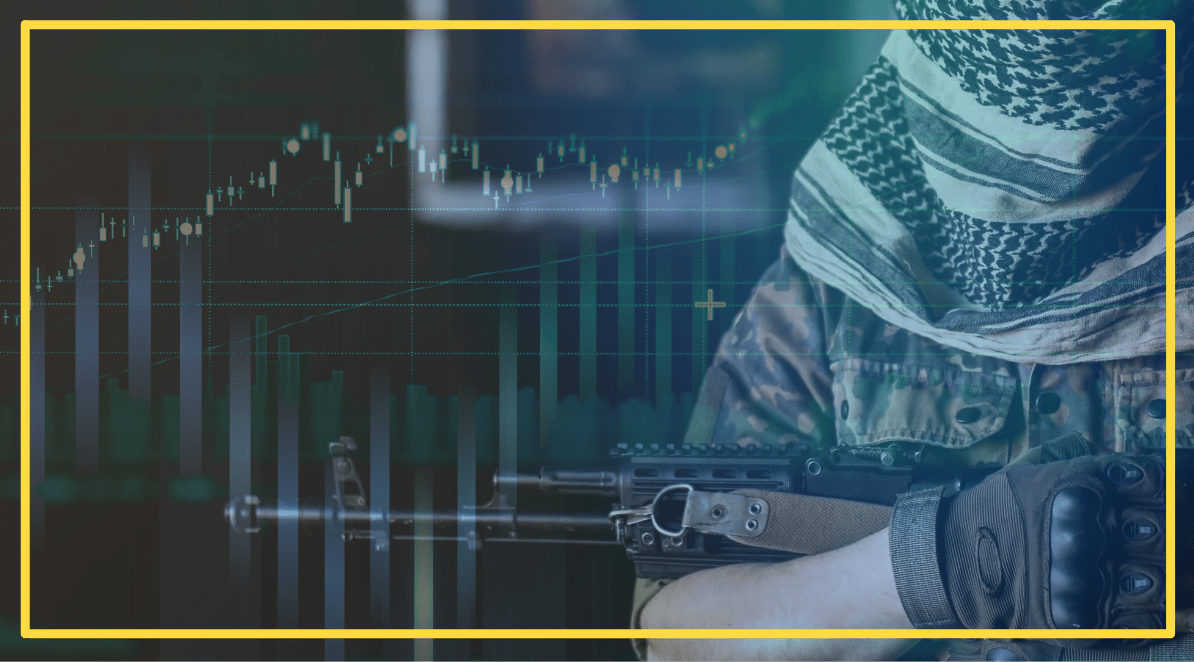The fall of Afghanistan raises the dangers of the country becoming a hotbed of terrorist activity with potentially global reach – whether the Taliban like it or not.
The country’s new government may not be able to stop the country being used as a terrorist base, says John Breen, lead analyst for global risks at Sibylline consulting firm in Dublin. The speed of the collapse of the regime of US-backed president Ashraf Ghani shows the fragility of central governance, he says. “I’m not convinced they have control over the whole country.”
Afghanistan does not function as a unitary state, and governance capability depends on personal relationships which can break down fast, Breen says. That means the risk of a major terror attack in central Asia or the West has now increased. For markets, that means “fat-tail risk,” the chance of a rare, unexpected event disturbing central forecasts and scenarios, has increased, he says.
The dangers have already been demonstrated by ISIS-K, a regional offshoot of ISIS that first emerged in Pakistan. The ‘K’ stands for Khorasan, a region that includes parts of Afghanistan and Pakistan. ISIS-K, which views the Taliban as unacceptably moderate, was behind the attack at Kabul airport which killed 13 US troops and at least 160 Afghans on August 26. According to the United Nations Security Council, ISIS-K carried out 77 attacks in Afghanistan in the first four months of 2021 alone.
The growing rivalry between the Taliban and ISIS-K adds to doubts that the new regime will be able to control the country, says Mark Cogan, associate professor of peace and conflict studies at Kansai Gaidai University in Osaka, Japan. “ISIS-K opposes the Taliban’s efforts to create an Islamic Emirate on grounds that it isn’t a global initiative and it sees the Taliban as an illegitimate actor,” Cogan says. “This is an ideological struggle.”
Mineral Wealth
The historical difficulty of ensuring central control in Afghanistan led to the country being known as the “graveyard of empires.” The Hindu Kush and Pamir ranges contain some of the world’s highest mountains, and the country’s peripheries have never been easily controlled by Kabul. Britain in the nineteenth century and the Soviet Union in the twentieth found that they could occupy territory, but not govern the country.
Joe Biden’s exit from Afghanistan has widely been seen as proof that the West is unable to build democracy or even a functioning state in the country. The real lesson is that a cycle of war followed by abandonment makes such an exercise impossible. The Soviet Union invaded the country in 1979, turning it into the last battlefield of the Cold War. International support for recovery in Afghanistan following the defeat of the Soviet Union by the US-backed mujahideen in 1989 was negligible, and the country remains littered with mines from the 1980s war.
The US withdrew from the region in 1992, and the central government in Afghanistan collapsed in the same year. The early Taliban were drawn from the ranks of the mujahideen, and by 1996 they controlled most of the country. By the time the world remembered about Afghanistan again after September 11, 2001, it was much too late.
The Taliban now wants a free hand to exploit the economic opportunities that now present themselves in partnership with China, namely the extraction of Afghanistan’s untapped mineral wealth, Cogan says. But analysts argue that there is little chance of Afghanistan becoming a stable Chinese ally.
Manu Bhaskaran, CEO of Centennial Asia Advisors in Singapore, questions the reliability of reports that Afghanistan has large base metals deposits. It’s not clear that these deposits have been accurately quantified, whether they are in accessible places and whether they can be extracted at reasonable cost, he says. Pakistan has much greater influence over the Taliban than China, which is likely to be able to wield only limited influence in the country, he says. “I can’t see Taliban-controlled Afghanistan becoming a client state of China.”
Bringing rare-earth resources into the ambit of China’s Belt and Road Initiative (BRI) would be a complex task, says Gabriel Collins, a fellow at Rice University’s Baker Institute in Houston. “Chinese firms would have to build the entire supporting infrastructure, construct and operate the mines themselves, and do all of this amidst the underappreciated but very real ‘hidden war’ between the Taliban and ISIS-K,” he says.
Depending on the level of knowledge of China’s repression of the mostly Muslim Uighurs in north-western China among the rank and file of the Taliban and ISIS-K, any sign of a close partnership may be untenable for the Taliban leadership, Collins says. “If the Taliban are seen as being too close to Beijing, you can bet that ISIS-K and other extreme splinter groups will weaponize the issue for recruiting purposes” and back that up with attacks on Chinese interests in Afghanistan, he adds. Given the security risks that China would face, Collins would be “very surprised if Afghanistan produces critical minerals at a commercial scale any time within the next decade.”
Breen points out that China benefited from the presence of US troops in Afghanistan as it created a more secure environment. Yet China’s BRI did not lead to significant investment in Afghan minerals under the old regime. The prospect of internal instability going forward, Breen says, will give China “pause for thought” about investing in Afghanistan, with “smaller and safer bets” likely to be preferred. While China may talk up the relevance of the BRI to try to get some leverage over the Taliban, Beijing already has security problems in Pakistan and realises that Afghanistan is even more dangerous, he says. China is already the dominant global supplier of rare earths, used for rechargeable batteries for electric and hybrid cars and wind turbines, so finding new resources is not an urgent priority, he adds. “There is not enough economic upside for China.”
India Exposed
Lack of technocratic expertise, with most educated people having fled, will make it hard to ensure the economy runs well enough to allow the Taliban to cement support in the regions. Billions of dollars of funding have been lost from the International Monetary Fund, the World Bank, the US, and the European Union, and the central bank reserves held in the US have been frozen. Meanwhile, the defeat of the old regime leaves thousands of troops unemployed, with no income and not much to lose.
The Taliban’s previous governance record indicates a group “historically bereft of governing skills,” says Harry Broadman, chair of the emerging markets practice at Berkeley Research Group LLC. That will make it hard to achieve any semblance of economic growth anytime soon, and foreign aid will be a big ask given the lack of a credible and trustworthy government, he says.
The history of Taliban rule in Afghanistan bodes ill for regional security. When the Taliban previously held power from 1996-2001, the regime gave free rein to a host of anti-Indian terrorist organizations within Afghanistan, with Indian-administered Kashmir bearing the brunt of their activity, says Vivek Mishra, research fellow at the Indian Council of World Affairs in New Delhi.
Pakistan, Mishra says, now has an incentive to relocate terror camps from its western regions into Afghanistan in an attempt to improve its standing with the Financial Action Task Force (FATF), which has put the country on its “grey list.” A further danger, says Mishra, is that India may become a new frontline in the battle against terrorism. India does not have the luxury of the West in being able to ignore the new government, which would risk allowing Pakistan greater influence, he says. So India faces both a greatly heightened security threat, and danger that trying to engage with the Taliban will undermine its own regional standing.
David Whitehouse is a freelance journalist in Paris.















